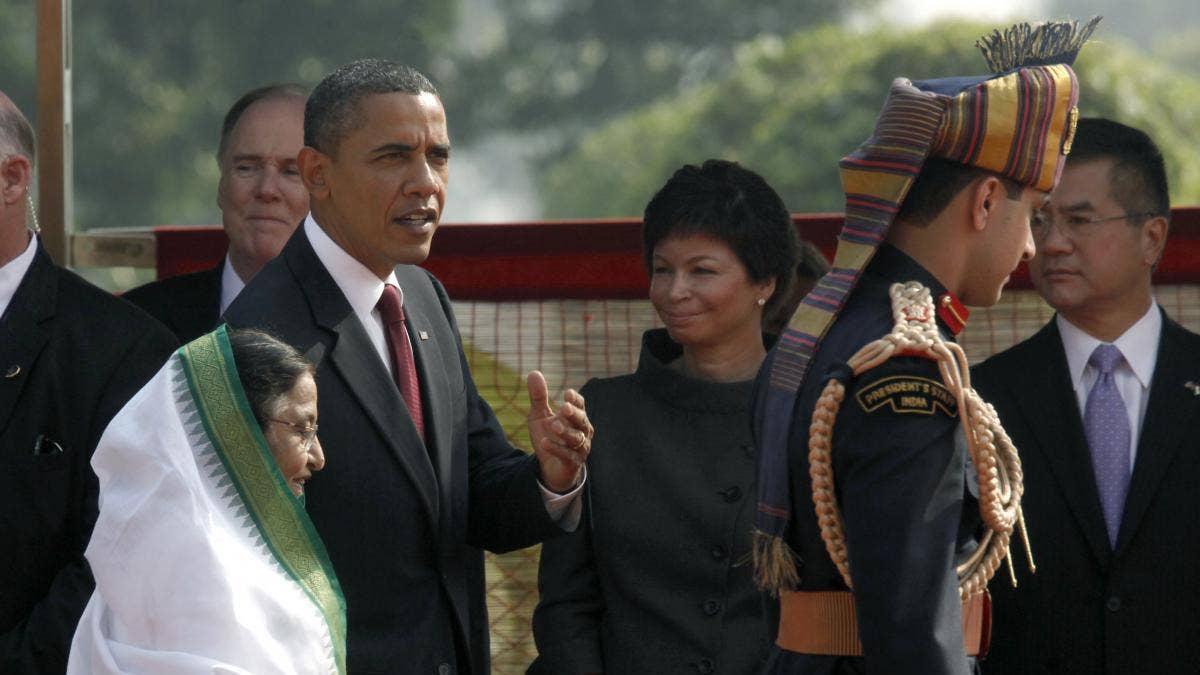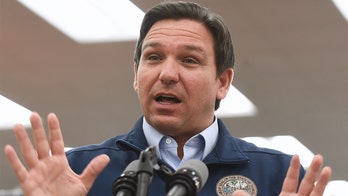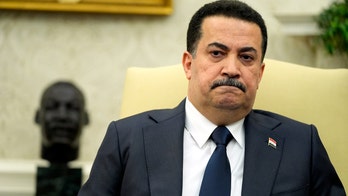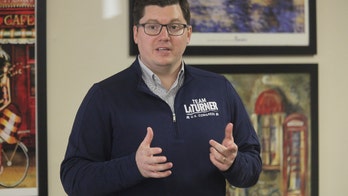
AP Photo
On his third day in India, President Obama said he backed the country for a permanent seat on the U.N. Security Council. Addressing the Indian Parliament Monday, Mr. Obama said that as an emerged global leader, the time for India has come.
"The just and sustainable international order that America seeks includes a United Nations that is efficient, effective, credible and legitimate," the president said. "That is why I can say today-in the years ahead, I look forward to a reformed U.N. Security Council that includes India as a permanent member."
The full endorsement fulfilled one of India's top priorities, as the country has been pushing for permanent membership for years. But Mr. Obama's backing doesn't mean we'll see India seated at the table with the five permanent members - the United States, China, France, Russia, and Great Britain - any time in the immediate future -- a reality the White House acknowledged.
"I think we've been very clear in saying that the international architecture, including the U.N., needs to reflect the realities of the 21st century; been very clear in saying that as we look at reform of the Security Council, it's important to preserve and try to find ways to strengthen its efficiency and legitimacy," said William Burns, under secretary of state for political affairs. "But I think it's also fair to say that this is bound to be a very complicated and difficult process, given the range of issues that have to be discussed, and it's bound to take a significant amount of time." Burns declined to elaborate on how long it might take.
Throughout the president's economy-themed trip through India, he's stated he views the relations between countries as "indispensable," illustrated by the fact this was the first country visited on the four country tour, that a near 20 trade deals were solidified on the first full day in country, that the president and first lady attended numerous cultural events during their stay, and of course, the White House's backing of permanent UN Security Council membership. Japan, the 4th and final country the president is to visit on this 10 day trip through Asia, is the only other country the president has backed for joining the U.N. Security Council as a permanent member.
Mr. Obama has been hammered by the Indian press during his visit, for not coming out stronger on Pakistan. India and its western neighbor have had generational tensions, amplified by the November 2008 attack in Mumbai which were coordinated by Pakistani militants. The president and first lady visited the 26-11 Memorial when they first arrived in Mumbai, but the president was criticized for not mentioning Pakistan in his remarks following the visit. Mr. Obama recovered a bit Sunday when in a town hall with students he said the U.S has been "honest and forthright" in its discussion with Pakistan about terrorism, noting the U.S. ally. understands the threat. Addressing the Parliament Monday night he went even further, and to applause.
"We'll continue to insist to Pakistan's leaders that terrorist safe havens within their borders are unacceptable, and that terrorists behind the Mumbai attacks must be brought to justice," the president said. He went on to add that nonetheless, India had some work to do on its part too.
"In pursuit of regional security, we will continue to welcome dialogue between India and Pakistan, even as we recognize that disputes between your two countries can only be resolved by the people of your two countries," said the president.
Earlier in the day, at a joint press conference with the president, Indian Prime Minister Manmohan Singh said while he recognizes a "strong, peaceful, moderate Pakistan is in the interest of India" and are committed to engage their neighbor, "you cannot simultaneously be talking and at the same time the terror machine is as active as ever before. Once Pakistan moves away from this terror-induced coercion, we will be very happy to engage productively with Pakistan to resolve all outstanding issues."
Mr. Obama also won some favor in India over the announcement the U.S would relax export controls over sensitive technology and the president said he would support India's membership into four global non-proliferation organizations. India has been limited in what they could export after nuclear testing in May 1998 which met international condemnation. As a result they were prevented exporting so-called "dual use" technologies, a category of exports that can be employed for military as well as civilian purposes.
The White House said the change was a reflection of India being a strategic partner and no longer "a country of concern." "This is the manifestation of the growing trust and confidence in each other," Singh of the new deal.
But the $10 billion in trade deals announced Saturday that are anticipated to raise over 50,000 jobs back home, brought some criticism from the Indian press who noted the unemployment rate in India is also high. In this morning's press conference with Prime Minister Singh the president was asked "what does India get out of all these deals?"
President Obama chided the reporter for not noting he has made the topic of outsourcing "a bogeyman" during the course of his visit in India, arguing that a pattern will develop that's a win-win for both countries.
"U.S. companies are creating jobs in the United States with technologies where we've got a lead. Indian businesses are then going to take those technologies and apply them in India to grow Indian businesses as well, asserted Obama. "Those are the kinds of patterns that I think make this relationship so important."
After receiving a "shellacking" in the midterm election over the still sluggish economy and high unemployment, Mr. Obama argued to both the U.S. and Indian audiences, his trip to, and economic partnership in Asia matters.
"When I go back home to the United States -- part of the reason that I advertise these 50,000 jobs is I want to be able to say to the American people when they ask me, well, why are you spending time with India, aren't they taking our jobs? -- I want to be able to say, actually, you know what, they just created 50,000 jobs," the president argued. "And that's why we shouldn't be resorting to protectionist measures; we shouldn't be thinking that it's just a one-way street. I want both the citizens in the United States and citizens in India to understand the benefits of commercial ties between the two countries."
Prime Minister Singh backed his U.S. counterpart.
"India is not in the business of stealing jobs from the United States of America. Our outsourcing industry I believe has helped to improve the productive capacity and productivity of American industry. And the new deals that have been struck, they all happen to be in infrastructure, and infrastructure today is the biggest bottleneck to the faster growth of India, to the faster growth of employment," said Singh "And therefore, these deals that the President has mentioned are truly an example of trade being a win-win situation for both our countries."
At a press briefing with reporters, White House Press Secretary Robert Gibbs was asked if Mr. Obama who - during his own presidential campaign in 2008, and then out on the midterm campaign trail this year criticized companies for "shipping" jobs overseas, had changed his position. Aides say, no.
"The president still strongly believes that our tax code should not reward with monetary incentives and benefits companies that ship jobs overseas. That's not any different," said Gibbs. "I think what the President is just doing is talking about the fact that our bilateral economic relationship is slightly more complex than those stereotypes."
The president is wrapping up his final full day in India. His Monday began with an official welcome ceremony at Rashtrapati Bhavan, the palatial residence of India's president, after which he and the first lady placed a wreath at Raj Ghat, a memorial to Mahatma Gandhi.
Monday night the first couple is attending a state dinner in New Delhi, and Tuesday it's off to Indonesia. It will be the first time Mr. Obama has been back to the archipelago since he lived there for four years as a young boy.




